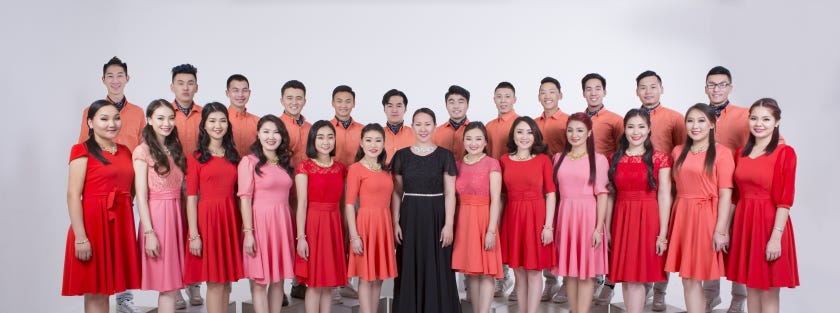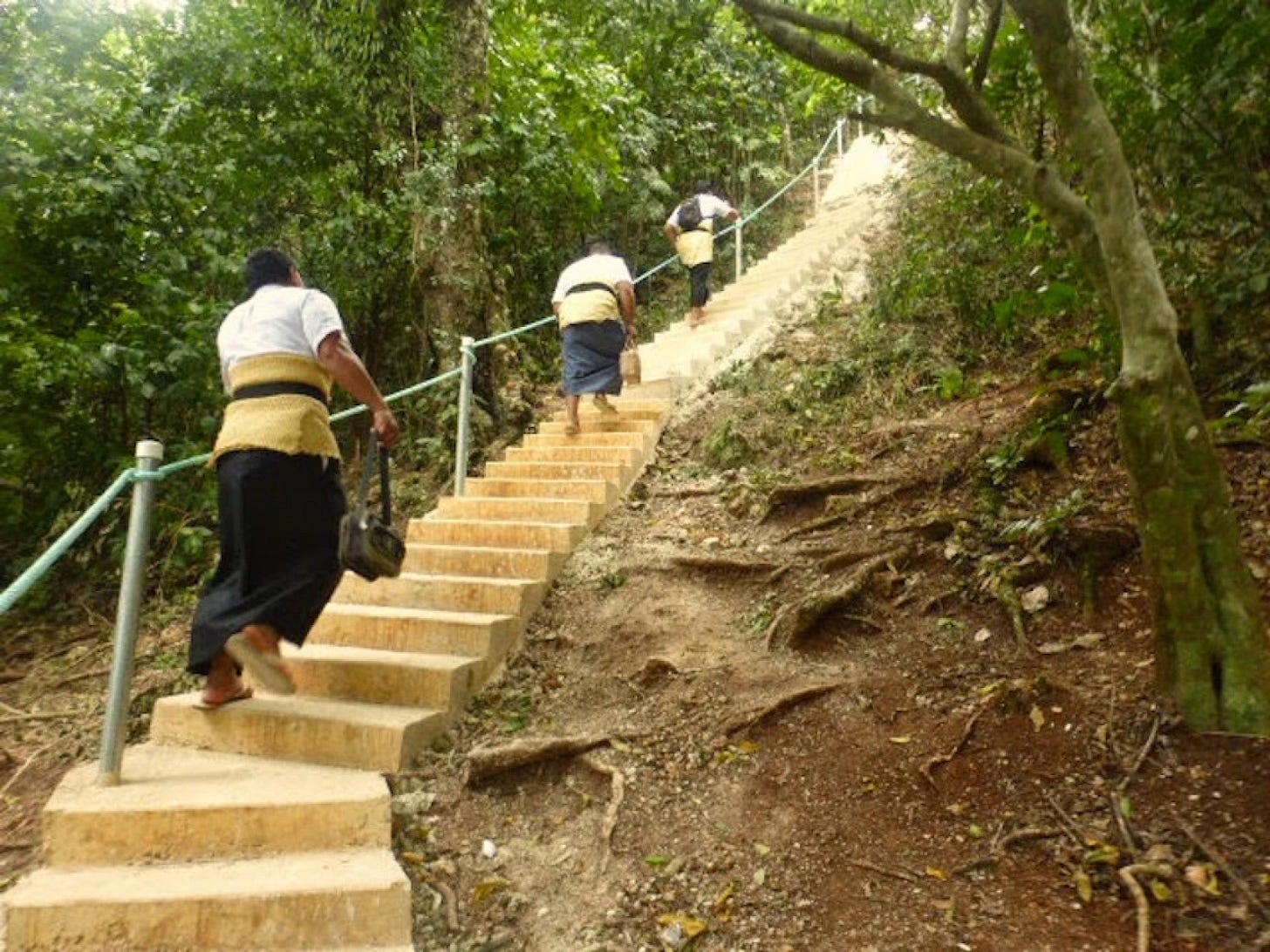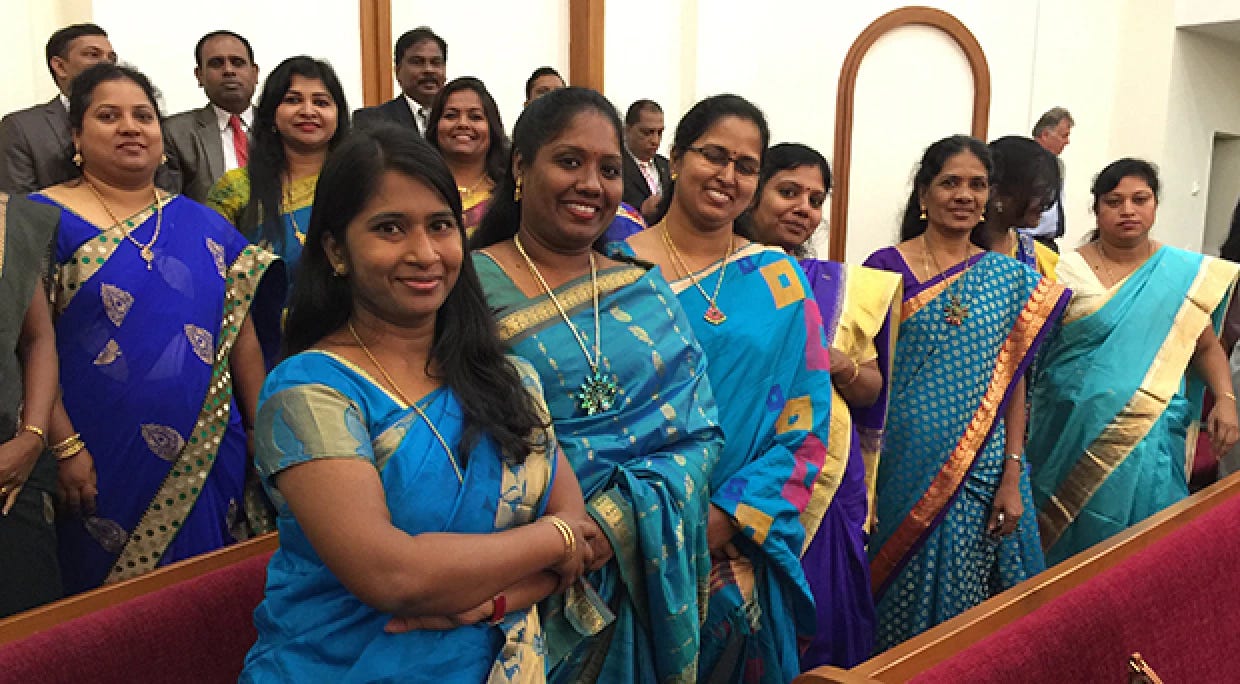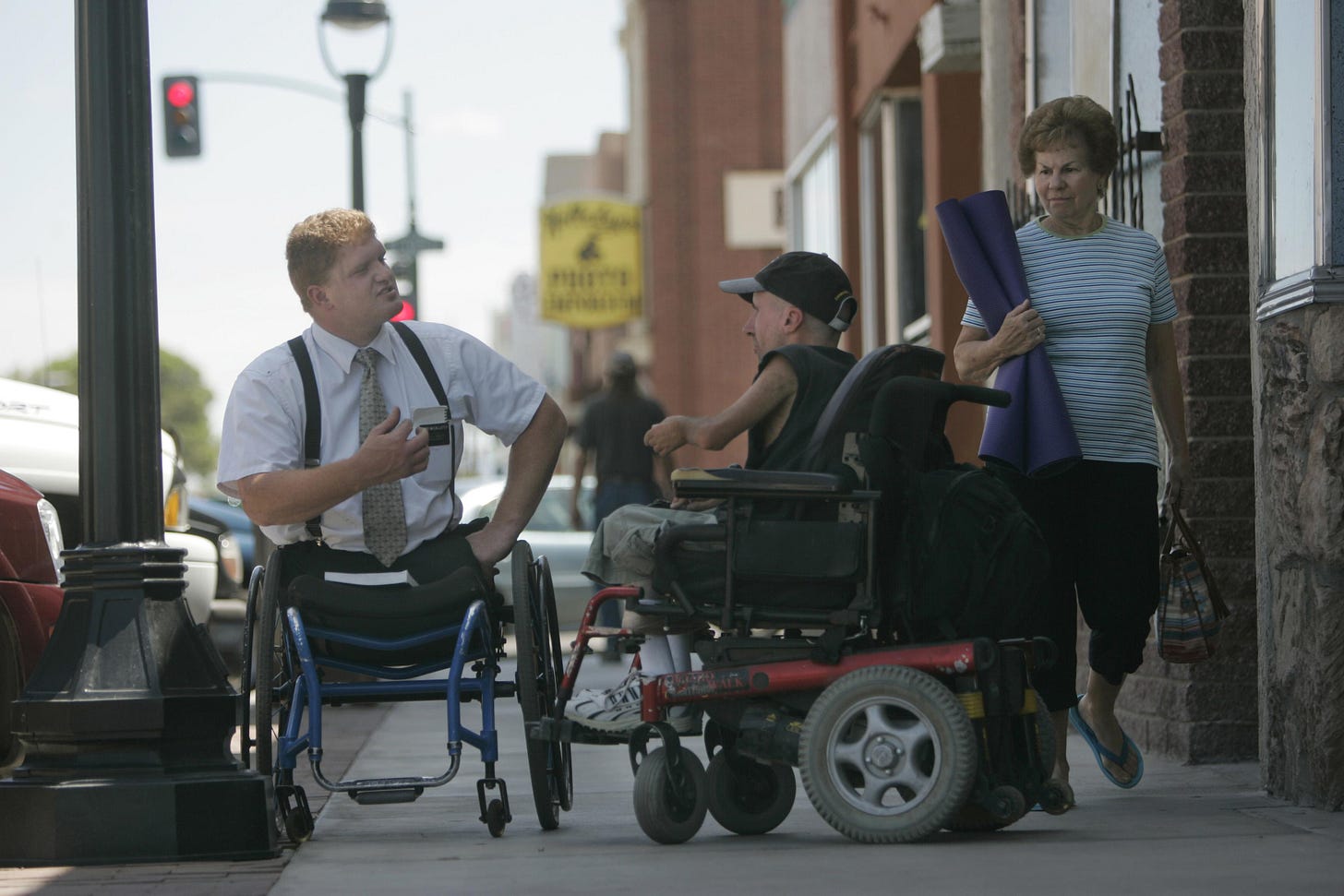Editor’s note: Samuel Benson addressed the Brigham Young University Class of 2023 as the student commencement speaker on April 27. This essay is based loosely on his remarks. Watch his speech here.
A few weeks ago, I went to the library to pick up a book I’d reserved. They brought me a stack of five or six books which definitely weren’t mine, but the little reservation slip had my name on them. I was confused. The library employee was confused, too. We looked at each other, and near-simultaneously, we had a realization: there must be another “Samuel Benson” on campus. We laughed, I took my books, and promptly forgot about it.
This happened again, and then again, and on that third time, I thought, ‘Okay, this has got to end.’ This poor other Samuel Benson is probably dealing with the same inconvenience. (Although he’s reading Dostoevsky this time, so at least he has good taste.) So I did the only logical thing, which was to grab a post-it note from the counter and scribble, “Dear Samuel Benson: If you’re reading this, I want to meet you. Signed, Samuel Benson.” I added my phone number to the bottom and put it in his book. He never called.
Why do I share this? Because the memory of it came flooding back as President Worthen read the program schedule at the commencement ceremony: Alumni association president Hillary Nielsen … Reverend Dr. Andrew Teal … student speaker Samuel Benson. Wait, Samuel Benson? What if I’m the wrong Samuel Benson?
I joke about this, and I acknowledge most people don’t have a mysterious doppelganger frequenting the same library, though in my community, I’m far from the only person to carry the crème de la crème of generic Utah titles: Biblical first name, Mormon last name. (To all the David Kimballs and Jacob McKays out there, I see you.)
But I’m sure most of us, if not all of us, have felt something similar. It’s common for prospective graduates, putting on our gowns and hats and looking in the mirror for the first time, to think, “There’s no way I am really a college graduate.” Behavioral scientists call this the “imposter syndrome”—this fear of being exposed as a fraud; of doubting whether we are enough, whether we are ready for this next chapter of our lives.
The impulse stems from a natural human tendency to seek belonging. We want to feel welcomed; we want to feel like we have a place in whichever space we occupy. We want to feel like our unique nature is not just acknowledged, but celebrated. One benefit of a university program is that upon graduation, belonging is prescribed to us. There is a specific list of necessary requirements, and once they’re all checked off, we’ve earned a place as graduates. We get instant membership in the alumni association. We get the university magazine mailed quarterly. We’ve done everything necessary to earn belonging, and it is given to us freely.
But the goal of a BYU education is a higher form of belonging. We seek for membership in Zion— the “beloved community.” This form of membership is indifferent to our GPA, our major or minor, or any of the other things on which we tend to hyperfixate during our college years. The list of requirements starts and ends with being “pure in heart”—to love and to share, to welcome and empower. A BYU education, at its best, teaches all the intricacies of our academic disciplines along with the necessities of a Zion community. A Zion community, at its base, embraces all.
I remember the first sociology course I took at BYU, before I’d declared it as my major. I knew nothing about sociology, aside from a course I’d taken years earlier in high school. (We went to basketball games for extra credit.) I knew college-level courses would be different, but how different could it possibly be? The subject material seemed mildly interesting, and as an aspiring lawyer, I figured it would only help.
It was a course on race and ethnicity. The professor, Dr. Jacob Rugh, was a white guy, raised on Chicago’s south side, who specialized in studying housing segregation. Near the beginning of the semester, he split us up into groups—all of them intentionally multiethnic—and gave us assignments. As a class, we’d be working on the first-ever “racial equity inventory” at BYU: a huge, campuswide project with the goal of analyzing BYU’s status as a place of belonging for all of its students, faculty and staff.
My group included two white students and two students of color. Our task was to analyze all the syllabi for courses across campus, and identify which ones talked about race or ethnicity. From there, we dug deeper: What ethnic groups are discussed, and how? Does the professor use the Church’s “Race and the Priesthood” gospel topics essay? Are white supremacy or white privilege discussed (and what about the Church’s statements on those issues)?
Other groups interviewed students of color, pored over demographics, or even took notes of racial representation in artwork hanging around campus. Our job was not to diagnose or to criticize; it was simply to study.
I came away from the project with two major impressions: one, BYU is full of remarkable individuals whose experiences and stories should be heard; and two, if we are serious about this whole idea of building Zion, we need to make room for everyone, because Zion isn’t Zion without all of us.
We submitted our findings to the college dean. But before the results were ever published, I felt them. I was sitting in a Black History Month panel, where several of my brave classmates (including Tee Tellas, one of my partners on the group project) were sharing their experiences as Black people in the U.S. Participants could submit questions anonymously. Before long, the queue was filled with racists tropes—criticizing the panelists, criticizing Black Americans, blasting racial fallacies while feigning faux ignorance. The Washington Post caught wind of the incident; when a reporter called, Tee said she was “very heartbroken.”
“The stories we as panelists were telling were very personal and very dear to our hearts,” Tee continued.
Within weeks, the pandemic canceled classes and sent us home. As the Black Lives Matter movement resurfaced questions of race and belonging, BYU again became ground-zero. Don Izekor, another classmate in my sociology group, helped draft a letter on behalf of the Black Student Union on campus, petitioning to remove all names from BYU buildings. Calls to jettison Abraham Smoot’s name from the administration building had circled for years. (Smoot, an early benefactor to the university and a prominent church and civic leader, was a slaveholder.) Don, who graduates from Cornell Law School this month, crafted a careful, nuanced argument: it’s been years since BYU named a building on campus, he reasoned (they now get generic names like “Life Sciences Building” or “West View Building”). To prevent future generations from singling-out or “defaming” future church leaders, why not apply the current practice retroactively and give generic names to all buildings on campus?
The letter made me uncomfortable. Two buildings on campus bear the names of my ancestors. My knee-jerk reaction to Don’s argument was that it would devalue their contributions and tarnish their legacies. I called Don. He listened to my concerns with empathy. He didn’t try to convince me of anything. He explained that we should of course honor the contributions of the women and men whose names are carved into facades and posted above door frames. But we also must honor the humanity—the dignity, the vibrancy, the lived experience—of every person who walks through those doors.
The idea of “Zion” is not unique to The Church of Jesus Christ of Latter-day Saints, but the Book of Mormon and modern revelation sharpen our image of what it can, and should, be. Zion is not just the millennial community that greets the Savior upon His return and lives with him in peace for a millennium. Zion should come now. Zion is a physical place and a figurative community. Zion is a place of diversity and peace. In Zion, we have everlasting joy.
The final prophet of the Book of Mormon, Moroni, pleads with future generations to build Zion: “Put on thy beautiful garments, O daughter of Zion; and strengthen thy stakes and enlarge thy borders(.)” Similar exhortations are made by Isaiah of the Old Testament, as well as in the Doctrine and Covenants. The pairing is uniform in all three instances: strengthen your stakes, and enlarge your borders. Strengthening Zion can’t come without enlarging Zion. Prosperity isn’t possible without inclusion.
My final three years posed a difficult challenge for our campus. How do we build Zion, when some feel that the walls of Zion are closed to them? How do we create a “beloved community,” when many feel little love? We saw progress—the creation of an Office on Belonging, a groundbreaking report on racial equity across campus, a forum series dedicated to building the “beloved community.” Three of the best speeches I’ve ever heard—delivered by the Rev. Dr. William Barber, Martin Luther King III, and the Rev. Dr. Andrew Teal—were given in that series. Each pointed to BYU’s new Statement on Belonging, which calls for a community “whose hearts are knit together in love.”
As I looked around, I saw students everywhere—everywhere—who were actively engaged in Zion-building. Some never felt unwelcome on campus, and yet they saw beyond themselves and lifted where they stood. Others never felt like they belonged, and so they started working to build a place for themselves. I saw Quincy Taylor, the founder of BYU’s Cybersecurity Student Association, who spent her time on campus empowering women to enter a field where nine in ten workers are male. I saw Gideon George, who came to BYU to play basketball, but left both with a diploma and with over 14,000 pairs of shoes to donate to people in his home country of Nigeria. I saw Noridianys Gomez de Bybee, who, upon arriving at BYU, found there were few on-campus resources for undocumented students like herself, so she worked with International Student & Scholar Services to create them. None of them asked for credit or for recognition.
I’d be surprised if they saw themselves, in the moment, as engaged in the act of Zion-building. To them, it was natural. Of course Zion would include Nigerian youth and Dreamers and women cybersecurity students. Of course they have a place. Everyone does.
And not only do they have a place, but they are loved. As the Reverend Dr. Teal said in a campus forum last year: “We need to show that whoever somebody is—whatever their color, creed, background, gender, sexual orientation, you name it—the Lord loves them.”
Toward the end of his career as a professor at BYU, Hugh Nibley compiled his essays, speeches, and other writings on Zion into a single volume. The result, a 631-page tour-de-force titled Approaching Zion, is blunt. Too often, Nibley surmises, our discussions of Zion deal with the hereafter; when building Zion, we need to focus on the here-and-now.
In one essay, he writes, “In the Zion of God, […] where there is no … sickness, there will be no more doctors; … where there is no litigation, there will be no lawyers; where there is no buying and selling, there will be no merchants,” and he continues to list about every field in which BYU offers degrees. (I note that he doesn’t mention sociologists like myself, likely implying that many of us are already unemployed.) But what do we make of this? How do we reconcile the claim that in Zion, we won’t need doctors or lawyers or businesspeople or whatever else, and yet as recent graduates we have spent four years and however many to come, training to be exactly those things?
Nibley never answered the question. In his stead, I humbly offer one possible interpretation: At BYU, we enter to learn, and we then go forth to serve. The laborer in Zion labors for Zion, not for money. In Zion, we don’t call each other doctors or lawyers or bussinesspeople; we call each other “sister” and “brother.”
Sisterhood and brotherhood is more than association. The relationships in Zion require more than tolerating another or acting “civilly.” They demand solidarity and empathy; they demand Christlike love. The Lord told Joseph Smith that the latter-day Zion will be both the most peaceful place on earth (“the only people that shall not be at war one with another”) and the most diverse place on earth (“there shall be gathered unto it out of every nation under heaven”). Those two qualities are uttered in the same breath.
Zion demands that we, in the same motion, both embrace one another and eschew worldly allures. The lone example of a true Zion community in the Book of Mormon, in 4 Nephi, highlights “the love of God” in the heart of each person. It caused them to abolish murders, lying, stealing, and most other forms of interpersonal transgression. It also caused them to have all things in common. Joseph Smith and Brigham Young experimented with the economics of Zion with varying results. By 1892, when British naturalist Phil Robinson entered the Salt Lake Valley, many of the vestiges of these experiments had faded. He found a once-isolated community that was now welcoming commerce and peoples by way of the Transcontinental Railroad and pining for U.S. statehood. Nonetheless, Robinson saw something peculiar among his hosts.
“The people [of Utah],” he wrote, “though ‘Americans,’ refuse to make haste to get rich; to dig out the gold and silver which they know abounds in their mountains; to enter the world’s markets as competitors in the race of commerce—a people content with solid comfort; that will not tolerate either a beggar or a millionaire within their borders, but insist on a uniform standard of substantial well-being, and devote all the surplus to ‘building up of Zion’[.]”
Zion is a paradigm shift, a changing of priority. Money is not the goal, but ministering. The mission of Zion is exactly this—to not get caught up in the allures of the world, but to use our surplus of skills and talents and abilities we’re given to build Zion. That is what makes institutions like BYU unique, and essential: its mission, in turn, is to prepare individuals to build Zion. It provides education not geared toward lucrative careers or financial comfort, though many of its graduates do achieve this. Instead, the mission is to serve and bless the world. The mission is to build Zion.
I was given experiences at BYU to combine scholarship and faith that I would have received nowhere else. My senior honors thesis explored the first British Latter-day Saint emigrants in the 1800s. I read their journals, autobiographies and letters. I wanted to know why they migrated—was it all economic, as many historians claim, or was it all spiritual, as our Sunday School teachers suggest? I found that it was both and neither. (The complex beauty of the social sciences.) In their writings, it is near-impossible to distinguish between temporal and spiritual motives. Economic depravity in England? It’s because England is Babylon. Family in Nauvoo? It’s because Nauvoo is Zion. The common theme through nearly every account was the call to gather to Zion. It was Zion that pulled them across the sea.
The same motive pushes people to Zion today. Unlike many of the world’s other highly selective universities, which define their prestige in part by how many students they exclude each year, Zion defines itself in terms of inclusion, a mission to allow all to find belonging “without money and without price.”
A tragic paradox: Those people who enter BYU, this Zion-building laboratory, and feel like Zion is not extended to them. They deserve our praise, and our aid. They are the ones, in many cases, who by necessity undertake the backbreaking labor as bricklayers and builders of Zion, while the rest of us stand passively as surveyors or scaffolders. We honor them not by statements or words. We honor them by standing shoulder-to-shoulder with them, trowels in hand.
When I reflect on my time at BYU, I remember classes and professors and projects, sure. I also remember the heroic students around me who quietly, almost unnoticeably, worked every day to build a Zion for everyone. I think of the visible moments, too—the woman I saw almost daily as she sat at a library help desk, to whom I never spoke. But then I saw her standing on a platform by the duck pond, a group of hundreds of my fellow students surrounding her, who’d walked out of class in support of our LGTBQ+ brothers and sisters. She poured out her soul to them, crying into a megaphone, begging for someone to make a place for her.
The pioneers who poured the foundations and laid the bricks on the old Brigham Young Academy building sang about finding the place which God prepared for them. There are pioneers today, too, not searching for the place, but for a place—a place where they can thrive, where they can belong, where they can love and be loved.
The assignment to represent my graduating class as the commencement speaker made me reflect, over and over, on two questions: First, what message encapsulates my experience at BYU? Second, what message adequately represents our class as a whole?
The answer to the first question is one word: Zion. BYU taught me how to build Zion and why to build Zion, and it forced me to behold the many, many people on Zion’s outskirts who deserve a place inside. My BYU education offered certainty on few things. I don’t know what Zion looks like, other than it being diverse and peaceful. I don’t know the best way to honor an institution’s history while also reckoning with its thorny parts. I haven’t experienced BYU from the perspective of a non-Latter-day Saint Nigerian or a Dreamer or a woman in cybersecurity. Aristotle said, “The more you know, the more you know you don’t know.” (Though the learned know Aristotle probably didn’t say that.)
To me, the second question—what message represents my class—is still unanswered, simply because a body of 7,000 individuals is far too complex and diverse to boil down to one message. My classmates will spend the rest of our lives answering that question. I instead left them with two questions: How has attending BYU shaped us in a way that other universities would have not? And how can we, in turn, shape the world in ways that other university graduates cannot?
My graduating class, and the BYU community, is overflowing with distinct skills and experiences and identities—some that we brought with us to campus, and others that were refined or developed there. We need all of them to build Zion. In Zion, there are no imposters and no frauds. We all belong.
The charge we’ve taken upon ourselves is to ensure that is true. We must serve the world, love our neighbor, be peacemakers, labor for Zion—until the walls we build around Zion have no other purpose but to embrace us all, to ring with our praise.
Samuel Benson is a Deseret News staff writer, BYU grad and aspiring peacemaker.
If you enjoyed this essay, you might also enjoy the following piece:











